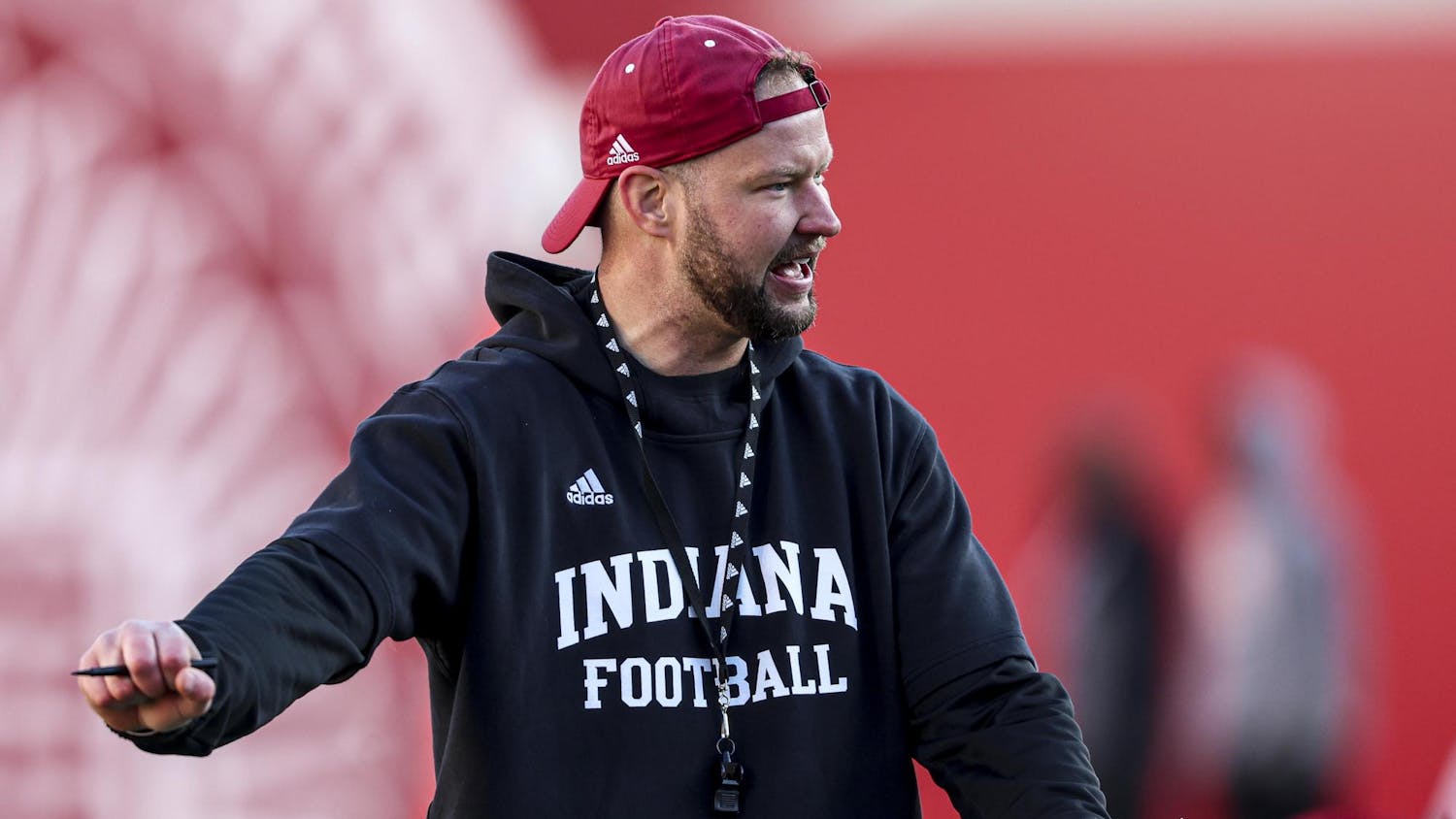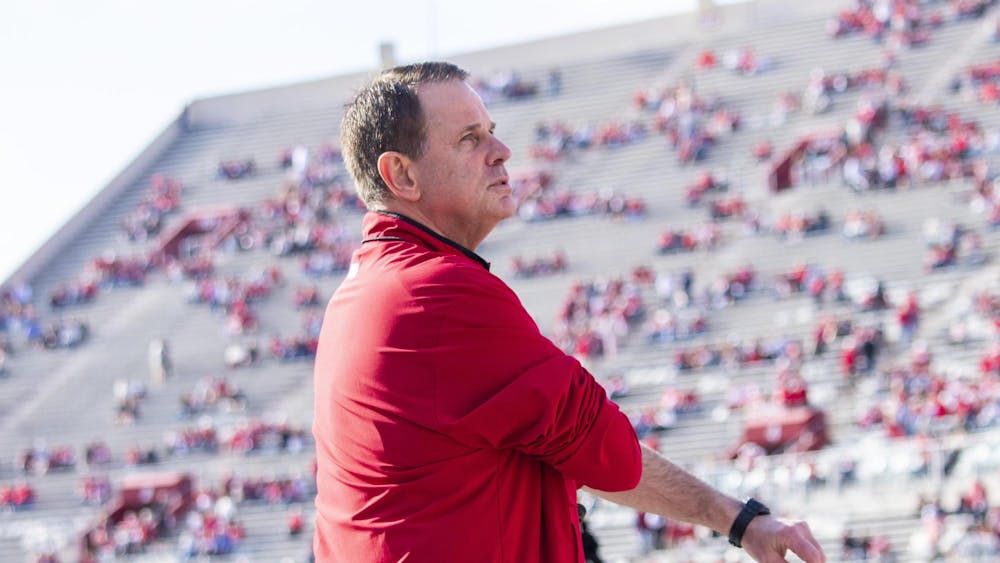IU has a love-hate relationship with college rankings.\nOn one hand, Interim IU-Bloomington Chancellor Ken Gros Louis admits that rankings for the business school, law school and undergraduate programs are subjective and sometimes not accurate. But on the other hand, potential students take notice of the rankings when selecting a school.\nGros Louis presented this academic conflict to the IU board of trustees Friday during their Academic Excellence Committee meeting in Bloomington.\n"In general, ranking universities and colleges and schools within universities is, at best, an imprecise science, so we should not weigh specific numbers too heavily," Gros Louis said. "It's very difficult, but not impossible, to develop a methodology that can accurately reduce the quality of any single campus to a number, so in a real sense all rankings should be looked at as generalizations."\nIn the presentation, Gros Louis broke down different collegiate rankings and what each study emphasizes. US News and World Report values faculty resources (20 percent), student selectivity (15 percent), retention (20 percent) and peer assessments (25 percent). Alumni giving and graduation rates are given the least weight at 5 percent each.\nGros Louis noted how IU ranked in each category compared to other schools in the Big Ten. IU's biggest downside was its student selectivity, ranking ninth. Gros Louis said IU could easily move up in these rankings by toughening their admission standards, but it may not be something IU would wish to do.\n"We have a lot of students with lower SAT scores who do very well at IU," he said.\nGros Louis' success with these students has also been a benefit to the University. Since more students graduate from IU than is predicted from their SAT scores, IU ranks No. 2 in graduation rate performance out of all public universities. Michigan State is currently leading the nation.\nAlthough IU is sure to let the public know when they receive top rankings, Gros Louis said you can't put too much stock into these lists since they are produced by magazines. He said you can tell the magazines haven't hit upon the perfect formula because they change it from year to year.\n"If they didn't change the rankings, they'd always be the same," he said. "And you know that's not good for selling magazines."\nAdditionally, Gros Louis noted how sometimes rankings can be completely inaccurate.\n"(In) a recent ranking, for example, the master's program in broadcast news in the School of Journalism was included in the top five nationally," he said. "That's great news, but unfortunately, journalism does not offer broadcast news at the master's level."\nLauren Robel, dean of the IU School of Law, then spoke about how rankings have completely altered the way law schools are run. Schools have changed their funding priorities year-by-year just to move up a few spots. The unfortunate thing, Robel said, is that these rankings are very easy to cheat.\n"There are a number of ways to manipulate these numbers and there have been some scandals at a few universities -- not ours -- but it does happen," Robel said.\nDaniel C. Smith, the interim dean of the Kelley School of Business, noted how his school faces some of the same troubles as the law school. For business school rankings, the numbers are mostly based on student feedback, corporate hirers and recruiter preferences. \nHe said the main problem with this system is that is falls into a "chicken and the egg" cycle. The best students go where the rankings are the best. Recruiters go to where schools where the best students attend. Students give good feedback on universities with lots of recruiters. So for the lower-tier business schools, it's tough to break from the cycle.\nAnother problem with the rankings is the excessive emphasis placed on student feedback. \n"I mean, what do students' want? Everybody gets A's," Smith said. "You could eventually progress to a 'Lake Wobegone' world where everyone is above average."\nThere also isn't much variance among the top schools when it comes to major categories such as faculty experience and graduation rates. Because of this, schools are beginning to focus on categories where there are greater differences between ranks such as internship resources and career services.\nAll in all, Smith said rankings do matter to students and around 90 percent of students make their decisions based on them.\nGros Louis summed up these rankings' effect on university decision-making with a quote from an unidentified dean: "It's distressing that the competition for faculty, students, research grants, donations and status keeps driving us toward increasingly expensive and time-consuming branding and marketing, rankings and ratings. Once upon a time, we built universities on the minds of the faculty; now, it seems, we try to build them in the minds of the public."\n-- Contact Sports Editor Adam Aasen at aaasen@indiana.edu.
College rankings might not be objective, scientific
Chancellor says despite problems rankings do matter
Get stories like this in your inbox
Subscribe





